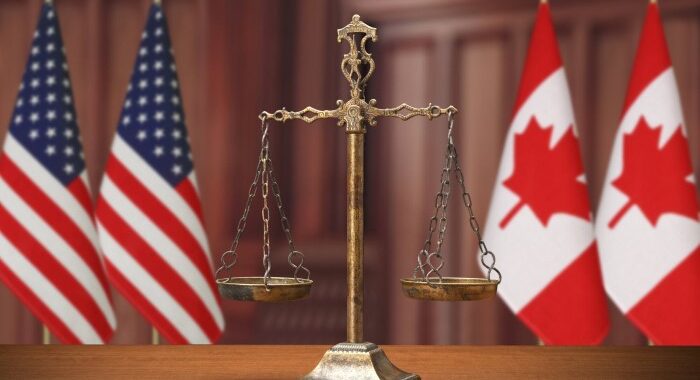Students Can Now File a Department of Education Lawsuit

Students will be able to speak out and file a Department of Education lawsuit after years of government failures. The Department of Education denied their borrower defense claims in the fall of 2020 because they lacked evidence to prove fraud. The judge has also rejected the Department of Education’s proposed settlement. The case is now awaiting a historic hearing. In fall 2020, over 500 student borrowers will be able to present their cases and get a chance to have their voices heard.
Class action lawsuit
The Named Plaintiffs in a Department of Education class action lawsuit have asked the court to certify the class of students affected by the state’s inaction on student debt. The lawsuit cites more than 900 affidavits describing the damage done to students by the DOE’s inaction. In October 2019, the court certified a class of more than 200,000 borrowers. This lawsuit is currently being heard in federal court in Manhattan.
The plaintiffs in this lawsuit have made several demands on the DOE, including making hiring earlier in the summer. This would help the department plan for its needs for the upcoming school year. The plaintiffs in the suit also seek that schools appoint a non-school-based “related service authorization liaison” to assist parents with vouchers and make-up services. And last but not least, the plaintiffs in the case want the DOE to ensure that its list of providers is accurate.
Defendants
The Equal Educational Opportunities Act (EEOA) requires school districts to provide appropriate services for English Language Learner students. The state of South Carolina is home to the third-largest school district in the nation, which has a rapidly growing English Learner population. As a result, the federal government filed a lawsuit against the state and its Department of Education. The lawsuit was eventually settled out of court, and the Defendants have agreed to make changes to their policies and procedures to ensure compliance with the EEOA.
The lawsuit alleges that the school district and other defendants failed to provide appropriate educational opportunities for all students. The plaintiffs claim that the school district failed to provide the necessary resources for students of color to succeed. This case alleges that the school district discriminated against these students based on their race, national origin, and religious beliefs. This discrimination was also made despite the students’ ability to communicate in English.
Status of case
The U.S. Department of Education recently filed a statement of interest in the Arnold v. Barbers Hill Independent School District case, which alleged discrimination against black students for their nonconformity to sex and race stereotypes. The lawsuit alleges that the defendants failed to provide appropriate services to English Learner students and violated the Equal Educational Opportunities Act. Title VI of the Civil Rights Act of 1964 enacted the Equal Educational Opportunity Act.
The lawsuit against the Department of Education cites numerous violations of the Civil Rights Act and the Equal Educational Opportunity Act. The Department of Education has denied the legal right of students to obtain a degree as a result of the inaction. However, the plaintiffs in the case are confident that the settlement will result in significant relief for all affected students. The lawsuit also cites several instances where the Department of Education failed to provide services required by federal law.
Settlement terms
The Department of Education has settled a federal lawsuit with eight plaintiffs seeking to cancel their student loans. The plaintiffs include students with disabilities who have received Section 504 plans or individualized education programs. The lawsuit was filed by the American Federation of Teachers (AFT). The suit highlights long-standing problems with the loan forgiveness program. According to the lawsuit, the Department of Education ignored complaints and did not properly monitor the process. The settlement will result in full discharge of student loan debt for all eight plaintiffs, totaling nearly $400 000 in relief.
The DOJ agreed to the settlement, which includes a provision requiring the University to develop an IT accessibility policy. The agreement also requires the University to implement those requirements. In addition, the plaintiffs are entitled to reimbursement for the costs of transportation and special education services for their school-aged children. The DOJ also agreed to investigate alleged violations of the EEOA. The plaintiffs have filed a federal lawsuit claiming that the Department of Education failed to provide access to their educational programs and materials.

 Voluntary Disclosure in Canada: What Are Its Salient Features?
Voluntary Disclosure in Canada: What Are Its Salient Features?  Inappropriate Touch During a Massage: What to Do and Your Legal Rights
Inappropriate Touch During a Massage: What to Do and Your Legal Rights  Understanding the Difference Between American and Canadian Law Systems
Understanding the Difference Between American and Canadian Law Systems  Common Process Service Mistakes and Ways to Avoid Them
Common Process Service Mistakes and Ways to Avoid Them  Officer LaPointe Pasco County Lawsuit: An In-Depth Overview
Officer LaPointe Pasco County Lawsuit: An In-Depth Overview  What to Do When a Loved One is Arrested
What to Do When a Loved One is Arrested  Know Your Rights: A Legal Guide to Abuse Laws in India
Know Your Rights: A Legal Guide to Abuse Laws in India  NIO Class Action Lawsuit
NIO Class Action Lawsuit  Nine Energy Lawsuit
Nine Energy Lawsuit  Nikola Class Action Lawsuit
Nikola Class Action Lawsuit